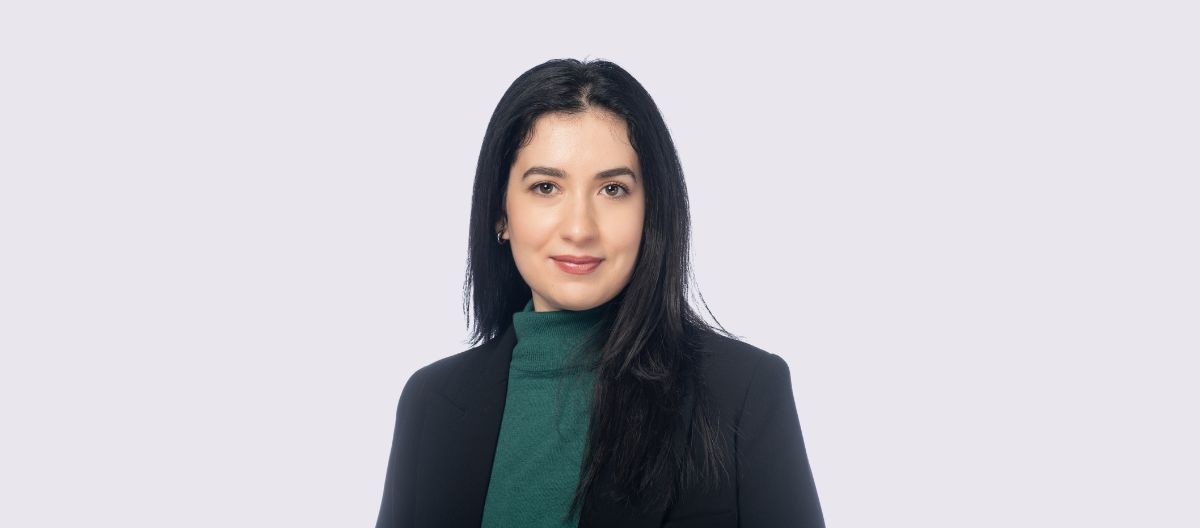
From the Classrooms of Bologna Business School to Professional Excellence: An Interview with Carolina Leuzzi, an Alumna of the Master in AI and Innovation Management
25 February 2025An academic journey that opens the doors to a rapidly evolving sector, a career successfully launched in a cutting-edge company, and a recognition as Best Student of the Master Professional programs: the story of Carolina Leuzzi is one of determination, growth, and strategic vision. In this interview, Carolina shares how Bologna Business School and the Master in AI and Innovation Management transformed her education into practical skills, ready to tackle the challenges of the tech world. From the importance of collaboration to the ethical challenges of artificial intelligence, we explore the perspective of someone who has made innovation her path.
After completing the Master in AI and Innovation Management, you started working at Dinova, a company led by Professor Boscato. Which skills learned during the program have been most useful in this role?
The Master in AI and Innovation Management was crucial for my integration into Dinova, as it equipped me with the tools necessary to address the complexities of the Artificial Intelligence sector and innovation management. Among the most relevant skills, I consider the ability to break down complex problems into elementary components, analyzing their mutual interactions and their overall contribution to the bigger picture. This ability allows me to organize information and create structured systems, tackling challenges in a methodical and effective way.
Furthermore, I gained a systemic perspective on how to structure innovation processes, integrating technological, organizational, and strategic dimensions. This perspective enables me to lead change with methodology and human sensitivity, both of which are essential in transformative contexts. Another strength has been the practical and project-based approach developed during the Master: thanks to project work and business cases, I learned how to translate theoretical concepts into operational solutions, making innovations immediately applicable in the corporate world.
You were awarded the Best Student recognition for the Master Professional programs this year. What does this achievement mean to you, and how did Bologna Business School contribute, if it did, to helping you give your best?
The Best Student award represents for me a significant milestone, not only on a personal level but also as a testimony to the value of collaboration and sharing. This achievement would not have been possible without the continuous interaction with colleagues from extremely diverse cultural and educational backgrounds. The richness of perspectives I encountered during the Master stimulated my lateral thinking and strengthened my ability to approach every challenge from multiple angles.
Bologna Business School played a central role in this journey, creating an environment that encourages the exchange of ideas and promotes teamwork through collaborative projects. This dynamic allowed me to develop technical and managerial skills while building a valuable professional and human network. The Best Student recognition is, therefore, not just an honor and a personal success but also the result of a collective experience that enriched my personal and professional growth.
You have entered a rapidly evolving sector, tech, which poses many challenges. In your opinion, what is the greatest challenge, and how do you think the skills and experiences gained during the Master will help you overcome it?
The main challenge in the tech sector lies in the speed at which innovation develops and spreads, making continuous learning essential to remain relevant. It is crucial not only to update one’s technical skills but also to understand the strategic, organizational, and ethical implications of new technologies.
The Master prepared me to navigate this dynamic context in three key ways. First, it strengthened my inclination toward continuous learning, encouraging me to maintain a curious mindset and to integrate cross-disciplinary knowledge. Second, it taught me how to manage complexity, addressing uncertain situations with a structured and mindful approach. Finally, despite coming from an engineering background, I consider the integration of the humanistic dimension to be crucial. You cannot approach artificial intelligence without considering its ethical and philosophical implications. This balance between technical expertise and critical reflection allows me to approach technological progress with a more comprehensive and forward-thinking perspective.
Navigating such a dynamic sector requires not only specialized skills but also the ability to ask fundamental questions, keeping alive the curiosity and the desire to explore an uncharted territory.
What advice would you give to future students of the Master in AI and Innovation Management who aspire to pursue a career in innovation and technology?
To future students, I recommend approaching the Master as a once-in-a-lifetime opportunity to develop skills, build a network of relationships, and expand your horizons. It is essential to take advantage of every opportunity by participating actively in projects, engaging in constant dialogue with professors, and cultivating curiosity about your colleagues, especially those with backgrounds different from your own.
I also encourage maintaining an open mindset: innovation often arises from stepping out of your comfort zone and challenging your certainties. The Master provides an ideal environment to experiment, make mistakes, and learn in a stimulating and protected setting.
Another key aspect is focusing on the practical application of knowledge. Every case study and project is an opportunity to develop a pragmatic approach, useful for tackling the real-world challenges of the job market. Finally, I remind you that innovation is not just a technical issue: it also involves the ability to understand the broader context, anticipate changes, and turn them into opportunities. The desire to learn, the ability to collaborate, and the ambition to create value are the foundations for building a successful career in technology and innovation.
